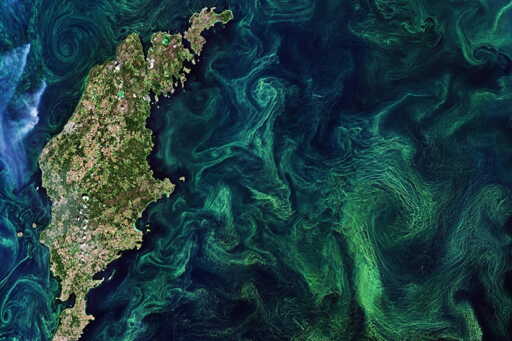The consequences of global warming, caused mainly by burning fossil fuels, are varied and many. Now scientists have documented yet another one: The ocean is losing its “greenness.” The ocean’s chlorophyll concentration, a proxy for phytoplankton biomass, declined over the past two decades, especially in coastal areas, a new study has found. Phytoplankton are plant-like organisms that are the base of the marine food web, supporting fisheries and broader ecosystems. The findings in the study, published Oct. 17 in the journal Science Advances, have far-reaching implications, according to the authors, most of them based at Tsinghua University in Beijing. “These changes will profoundly affect the magnitude and distribution of marine ecosystem functioning,” they wrote in the study’s conclusion. Curtis Deutsch, a professor of geosciences at Princeton University in the U.S., who wasn’t involved in the study, echoed their concern. “It’s not good,” Deutsch told Mongabay, speaking of the finding of reduced ocean greenness. “[It] almost certainly means that there’s less production of new organic matter, of algae in the ocean,” he added, with the qualifier that the trend of phytoplankton loss was relatively slow and he didn’t expect a “sudden collapse.” Study first author Zhongkun Hong, at the lectern, leads a discussion on chlorophyll A concentration and phytoplankton dynamics. Image courtesy of Di Long. Deutsch said the findings weren’t shocking, as scientists have theorized that a loss of greenness could be occurring. That’s because rising sea surface temperatures increase stratification — that is, they increase the difference in the density…This article was originally published on Mongabay
From Conservation news via this RSS feed


